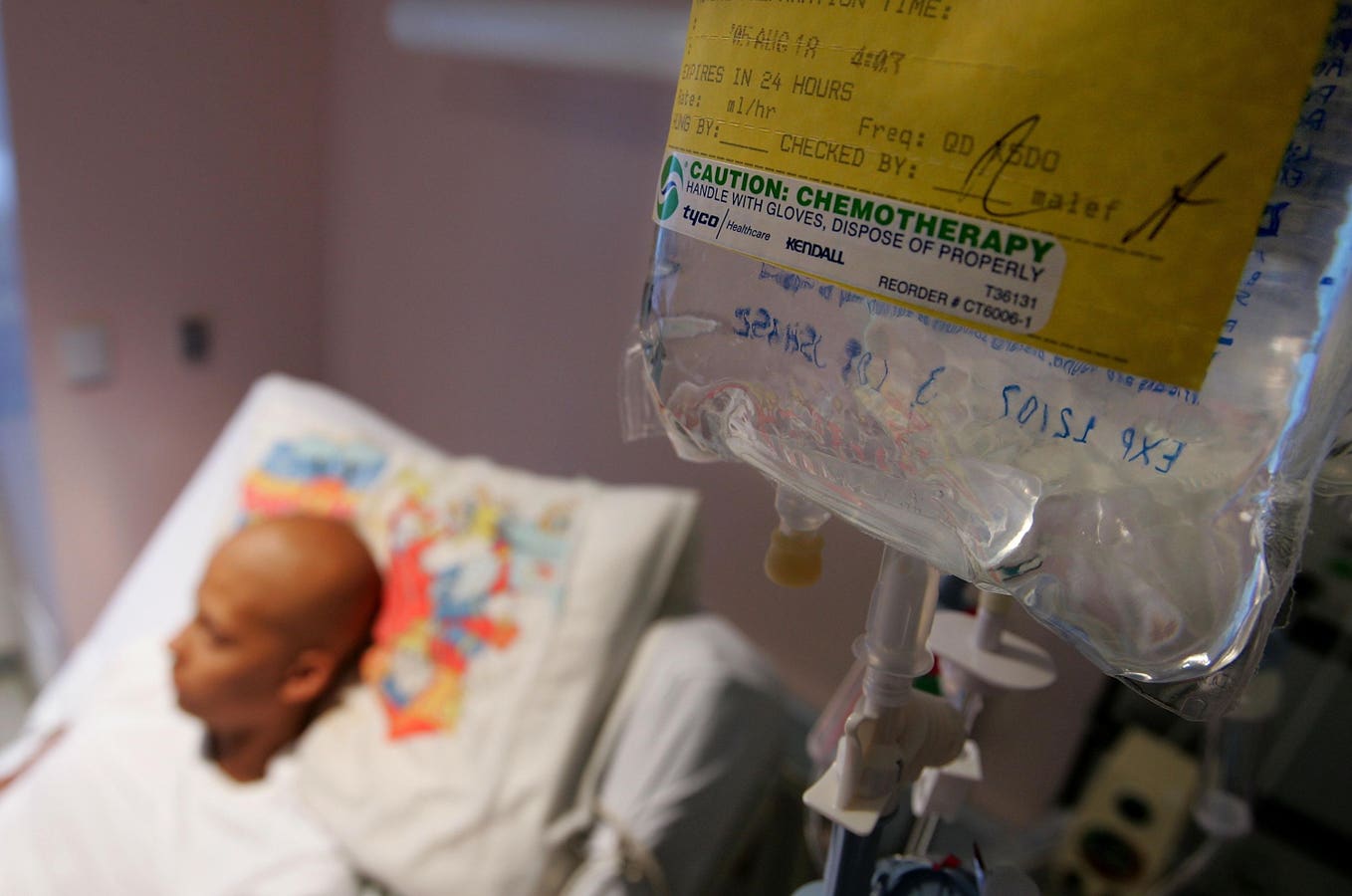Once considered rare, early-onset cancer is now an alarming reality. More young adults are getting … More
Cancer is typically thought of as a disease of aging. That is changing, unfortunately. Early-onset cancer is surging in people under age 50. Cancer is now a disease young people increasingly need to worry about.
And it’s not just one or two rare malignancies. A new U.S. government study found that the largest increases are in breast, colorectal, kidney and uterine cancers. Scientists from the National Cancer Institute looked at data that included more than two million cancers diagnosed in people 15 to 49 years old between 2010 and 2019. A 2023 study in BMJ Oncology also reported that global early-onset cancer cases rose by nearly 80% between 1990 and 2019.
Some of the rise may be due to better detection. But that doesn’t explain most of it. Something — or more accurately, many somethings — are fundamentally changing cancer risk in young people. Here’s what’s going on and what could be done about it, should we choose to take action.
Why Are Young People Increasing Getting Early-Onset Cancer?
Normally, cells grow, divide and die in a controlled fashion. Cancer cells don’t because their DNA has mutated. The result is uncontrollable cell division: the formation of cancerous tumors or blood cells which in some cases spread throughout the body and become deadly.
The DNA mutations that cause cancer arise from several sources. Some people inherit faulty DNA repair mechanisms, like BRCA mutations that elevate breast and ovarian cancer risk. But most mutations are acquired — from lifestyle, environmental exposures, or spontaneous errors during cell division.
Older people accumulate more mutations over time. Yet the issue is that many children and young adults are increasingly exposed to cancer-causing factors compared to prior generations. This translates to more cancer in young people.
Ultra-Processed Food Increases Early-Onset Cancer Risks
Perhaps the most dramatic shift in modern life is the dramatic rise in ultra-processed food consumption. The so-called Standard American Diet (aptly abbreviated SAD) is now the global norm: high in refined sugar, low in fiber and full of chemical additives, emulsifiers, nitrates and preservatives.
A 2023 meta-analysis found that just a 10% increase in ultra-processed food consumption was linked to a 13% higher overall cancer risk and an 11% higher risk of breast cancer. Other studies have linked ultra-processed food intake to increased rates of colorectal and pancreatic cancers. Some estimate a 30–50% increased risk.
Processed meats — like bacon, hot dogs, and deli meats — are classified by the World Health Organization as Group 1 carcinogens, on par with tobacco and asbestos. Yet these products are staples in many American diets, including those of children and teens. Known carcinogens are regularly served in school lunches.
The Obesity Epidemic Is Catalyzing Early-Onset Cancer
Surges in obesity are another major driver. Since 1975, global obesity rates have more than quadrupled. Over 40% of U.S. adults are now classified as obese, with alarming increases in adolescents and young adults.
Excess fat – particularly the tissue that surrounds the internal organs – is metabolically active, producing inflammatory molecules, altering hormone levels and impairing insulin signaling. This combination can promote the growth of cancer. According to the International Agency for Research on Cancer, obesity is linked to at least 13 different cancer types, including colorectal, endometrial, kidney, and postmenopausal breast cancer.
And it’s not just weight. Sedentary behavior plays a role. A meta-analysis found that prolonged sitting increases cancer risk independently of exercise, raising the likelihood of colon, endometrial, and breast cancers by up to 29%.
The ‘Exposome’ Of Chemicals Is An Important Cause of Early-Onset Cancer
Modernity is a soup of synthetic chemicals — from BPA in plastics to phthalates in cosmetics, PFAS in water-resistant materials and pesticides in food. These substances, which have increased dramatically over the last 50 years, are collectively known as the :exposome.” They can damage DNA, disrupt hormone regulation and trigger chronic inflammation — all triggers for cancer formation.
Research has found strong associations between exposure to air pollutants like polycyclic aromatic hydrocarbons, indoor toxins like formaldehyde and higher cancer risk — particularly for lung, breast, prostate, and even melanoma. Recent research suggests that microplastic particles found in human blood and tissue may also pose emerging carcinogenic risks, though further study is needed.
Alcohol Use Is Increasing Early-Onset Cancer Risk In Young People
Despite its social acceptance, alcohol is a Group 1 carcinogen — even in moderate amounts. Alcohol damages the cell’s DNA, increases estrogen levels, and contributes to oxidative stress.
The risk is especially notable for breast cancer in women and colorectal cancer in both sexes. One study ound that moderate to heavy drinking significantly increased the dose-dependent risk of early-onset colorectal cancer. The American Cancer Society now states plainly: no amount of alcohol is safe when it comes to cancer risk.
How We Should Address Surging Early-Onset Cancer Risks
Addressing the cancer surge in young people requires a multi-layered approach. First, governments could consider warning labels for ultra-processed and red meat products and restrict marketing junk food to children and adolescents. Governments could also subsidize access to healthier foods — especially in schools where today’s lunches are filled with ultra-processed food high in refined sugar and processed meats.
Early-life prevention should become a cornerstone of cancer control: educating families on nutrition and physical activity, supporting maternal health and early childhood environments and ensuring every child gets metabolic screening. Preventing obesity and insulin resistance could dramatically shift lifetime cancer risk.
Environmental regulation could also better address modern chemical exposure. This should include limiting or perhaps even banning endocrine-disrupting chemicals such as BPA and PFAS from food packaging, personal care products and household items. Large-scale investment in exposome research could help us understand how lifelong chemical exposures interact with our genes and affect cancer risk. Stronger FDA oversight and transparent ingredient labeling could empower consumers to make safer choices.
Screening and early detection must also evolve. The American Cancer Society has already lowered the recommended age for colorectal cancer screening to 45 because of the increasing incidence in younger adults. Additionally, risk-stratification approaches that include family history, lifestyle factors, and metabolic markers may justify even earlier screening for many. Expanding access to non-invasive diagnostic tools — such as stool DNA tests — and integrating AI-driven risk assessment models could help identify high-risk individuals sooner, enabling earlier interventions.
Finally, alcohol and sedentary behavior need to be addressed. Public health campaigns should clearly communicate alcohol as a carcinogen and challenge the normalization of drinking in youth culture. We should promote physical movement, including active transportation options, walkable neighborhoods, and work environments that reduce sitting time. Schools, too, should emphasize daily physical activity not just for fitness but for long-term disease prevention.
Ultimately, the rise of early-onset cancer is not inevitable — it’s a consequence of choices made over the past 50 years in how we grow and process our food, build our cities, regulate our chemicals and conduct our daily lives. Reversing this trend will require political will, corporate accountability and a cultural shift in how we value long-term health.








